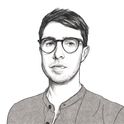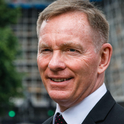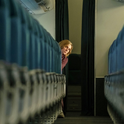Ai Weiwei wakes up at six every morning. If he is in Cambridge—he splits his time between the English city, Germany and Portugal—he will take his son to school; otherwise, he says, he does “basically nothing.” That sounds unlikely. In the past two years, he has produced a memoir of his childhood, two feature-length documentaries, several exhibitions and, this March, a debut opera production of Turandot in Rome. Over a decade since the work that brought him to western audiences—the millions of ceramic sunflower seeds spread out in the Tate Modern’s Turbine Hall—the Chinese artist remains as active, and outspoken, as ever.
I ask Ai, over email, how he sets out on a new project. “I am a natural person,” he says. “I am a leaf floating in a river. Carried downstream by the current of the river, what the leaf sees along the shore changes all the time.” The most important aspect is not the finished work but the process, which “is the carrier of my expression.”
Weiwei knows what it’s like to lose one’s freedom
As an activist, Ai is at his most passionate when defending freedom of expression, which has led him to make some unlikely allies. This May he surprised many of his followers by tweeting that Elon Musk’s attempted purchase of Twitter would make the platform “much better.”
When I ask for his thoughts on social media, Ai’s response is somewhat gnomic. “Social media is a lighthouse,” he writes. “It indicates our position but also points out potential danger.” Likely alluding to Donald Trump, he says that “when Twitter deleted some unfavoured politicians’ accounts, it was a gesture of an authoritarian society”—and that without the “basis of free expression,” platforms like Twitter and Facebook are no better than China’s state-controlled WeChat. “Even though I find some thoughts stupid and ridiculous, their existence is my most important belief,” he says.
Ai is evidently as dissatisfied with the state of western media as he is with China’s: CNN and the BBC, he says, are “very biased” and “carried away by political correctness.” He is furious at our indifference towards the case of Wikileaks founder Julian Assange, who faces extradition to the US over espionage charges and a 175-year prison term. “Western society can hardly advocate [its] principles of so-called freedom and press independence” so long as Assange remains in limbo, Ai says.
Ai knows what it’s like to lose one’s freedom. When he was a boy his father, the renowned poet Ai Qing, fell foul of Mao; the family were exiled to Xinjiang, where Ai Qing was tasked with cleaning communal toilets. In 2011, Ai himself was held in confinement for 81 days by Chinese authorities on spurious charges of tax evasion. After his release, he created a series of miniature dioramas showing his experience, which included being watched by guards as he showered. Unlike western commentators moaning about online cancel culture, when Ai says “stopping people from speaking up is the start of authoritarianism,” his words carry real weight.
Social media, in any case, has become personally less important to Ai as a vehicle of free expression. Outside China he has “other possibilities” to express himself: namely his exhibitions, his documentaries. I ask him if there are any artistic projects currently in the pipeline. “I have never had any artistic projects that are currently in the pipeline,” he replies.
“What I do is respond to the demands of society… If there are such demands, I would actively react to them. If not, I would try to look for things that I find fun.”













